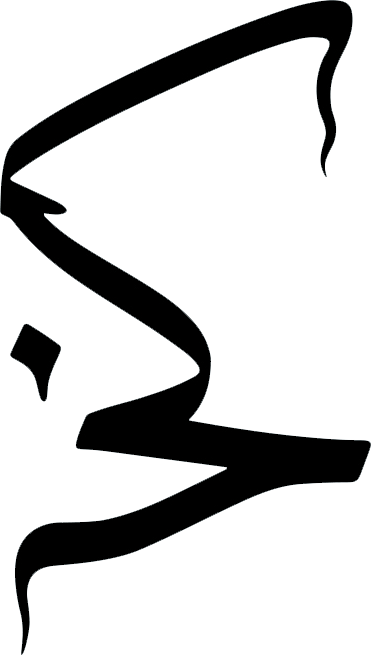Interview: Face with Yumna Al-Arashi
by Andrea Deniz
Brika, Yumna Al-Arashi, digital print on crystal archive paper, 2017.
Inspired by her grandmother and great-grandmother, but unable to return to Yemen for this project, Yumna Al-Arashi’s photographs tell stories of power and home in her exposition of land-specific stories. Her photo project, Face, unearths rich female histories by documenting the tattoos of Middle Eastern and North African matriarchs. Depicting powerful female faces adorned with delicate inked imagery symbolizing what each woman values in her life, Face highlights the importance of learning from memories, since it was there that women’s divinity held more power.
The value of these stories is intimately connected to identity and representation. As a Yemeni-American artist, Yumna feels “as though I had two separate identities that had nothing to do with one another.” Yumna thinks it’s “important to see the differences and similarities in both of these places.” Through the female gaze, “we can relate to both of these places even though we’d like to think they’re so different.”
Openness and accessibility also underlie these deeply personal narratives. Yumna formed relationships with the matriarchs without the need for ‘family connections,’ professional fixers, or money. Instead, she approached them the same way she does with any of her photo subjects, “by talking to them, getting to know them, telling them about my project, and why I’m doing it.”
“I think our region has forgotten about these past generations of women, and when they have the opportunity to, and are reminded of their beauty, they celebrate them. But I think in our entire society, all over the Earth, we have forgotten women’s power in general.”
This brazen omission in our collective memory is not unique to the Middle East—this is a world-wide problem. But, says Yumna, “I think this is something that is beginning to become unearthed again. These conversations are not limited to ‘east or west’.”
Yumna does not believe that the so-called ‘Eastern World’ deserves “the target of worldwide hatred and propaganda to make it seem as though it is the worst of all. I do not believe it is. I believe we are all at fault for our treatment of women throughout the entire world. That’s the first step we need to admit before we place fingers at east or west.”
In a world where the identity of migrants is fraught with projected misrepresentations in the media, Face’s honesty fastens us. Having myself grown up in the United States as a child of Latinx and Middle Eastern immigrants, maintaining the memory of family and land were crucial to honoring my heritage. Today agricultural practices are still largely important to women in the MENA region. My grandmother’s once active lifestyle led her through fields and pastures of flowers and fruits, where she would stop at the prettiest petals to say hello. My girlfriends keep planting the same seeds their matriarchs once planted in Bulgaria before they immigrated to Anatolia. And it is in our memories that we retain this knowledge of matriarchal activities and their veneration for the land they worked on.
Face asks us to remember our grandmothers. The tattoos that adorn their faces demand that we acknowledge the strength these women carry. For those of us who are stuck away from home, away from our matriarchs, artists like Al-Arashi help us to reconnect with an innate part within ourselves.
Yumna Al-Arashi (b. 1988, Washington D.C., USA) was born to a Yemeni father and Egyptian mother, and raised in the United States. She studied International Politics at The New School in New York City and her on-going photography work has received support from The US Department of State Office of Art in Embassies, International Women’s Media Foundation, The Arab Fund for Arts and Culture, National Geographic Abu Dhabi, and VSCO. She was named an Up And Coming Female Journalist by Forbes Magazine in 2011. Yumna’s work confronts her own struggles of identity and placement in the social realm as both a woman and a Muslim. Her background in politics and journalism shines in her work, where she approaches humanitarian matters such as women’s rights and labor injustices.
Andrea Deniz dedicates her time to understanding the valuable lessons born of the Middle East and Latin America. The synthesis of these two regions within her blood is what drives her to challenge Turkish hegemonies, as the lasting diaries of Latinx revolutionaries pair boldly with the dry olives of Anatolia. You can find her daydreaming of intersectional feminist futures on any given day.
Special thanks to Lizzy Vartanian Collier and Omar Alhashani for facilitating the production of this interview and piece.

